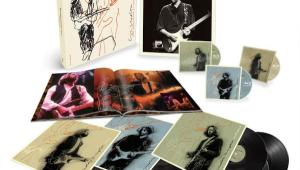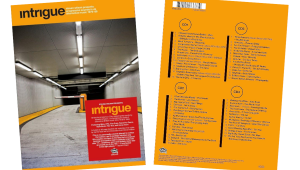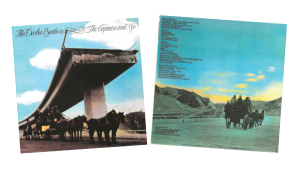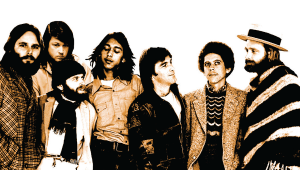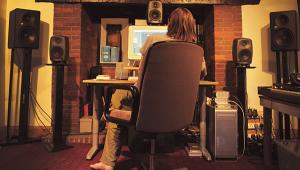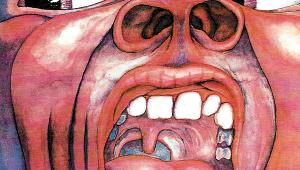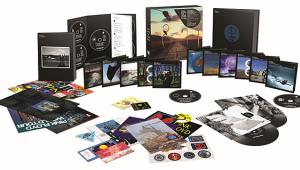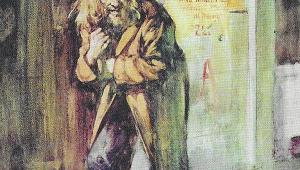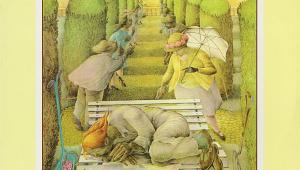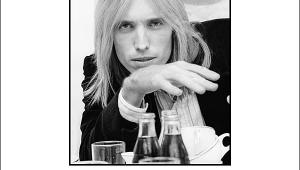Nellie McKay: 21st Century Renaissance Woman Page 4
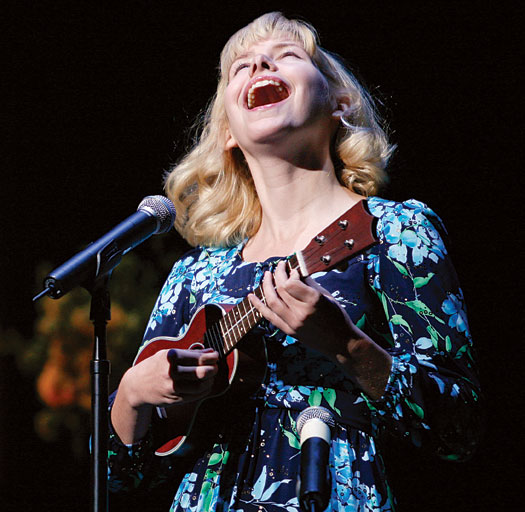
Photo by Walter McBride/Retna Ltd.
As did "Adios," which began as the big production number "Goodbye" (available as one of the bonus tracks) before taking its present solo-ukulele form. "We recorded 'Goodbye' during the same Aimee Mann tour ... She's just so inspiring, and being around all those people, you really feel like, 'I gotta make something here!' ... But perhaps having done that recording so long ago, we made a demo of the song to give to David Byrne, so he could hear the direction of the album. And then we kind of liked the simplicity of that little demo, which is why we put that arrangement on the album. And now that I'm more used to 'Adios,' I think I prefer 'Goodbye'! It's perverse like that."
As McKay told the Lehigh Valley Music blog, Byrne was "kind of the godfather" to the new album. "When I was writing it, he gave me a big bag of CDs to listen to, and he gave us all these recommendations of people to find. He was a guiding force and spirit."
He was also returning a favor, as McKay sang "How Are You?" for Byrne and Fatboy Slim's concept album about Imelda Marcos, Here Lies Love (Nonesuch). She has done other such guest turns, including "I Feel Pretty" for the Queen Latifah movie Last Holiday, "Late Again" for the post-Katrina benefit Dear New Orleans (available from online stores), and "If I Needed Someone" for This Bird Has Flown (Razor & Tie), a tribute to the Beatles' Rubber Soul, where she took George Harrison's Byrdsy song and turned it into an eccentric Brazilian thing. (She also has done "Yellow Submarine" for a still-unreleased Revolver tribute.)
Speaking of eccentric, the arrangement for "Absolute Elsewhere" is probably the most remarkable one on Mobile Home, with marimba drifting left and right in the stereo sound field, a part for cello, and a chorus that dips seductively into rock without going all the way.
"It was a bit of a challenge to mix," McKay concedes. "Ultimately, the only one who could crack it was M.P. Kuo. She's wonderful. And so easygoing. It's nice to have an easygoing engineer because, as I said, recording can get kind of stressful at times. M.P. is an example of someone who is unsung, working in a small studio. I shouldn't talk too much about her because other people are going to steal her away!"
I point out to McKay that among the 13 tracks on Mobile Home, she plays piano on only four.
"Is that so? Wow . . ."
She does play other instruments: ukulele, of course, but also organ, synthesizer, saxophone, clarinet, percussion, and that marimba and cello. Clearly, it's another example of McKay's fondness for variety.
"Yes, and I like listening to other people, too. ... I wish I could play guitar. There's something about guitar music. I know it's probably the most ubiquitous style in popular music, but it can stir up so many different emotions ... I do love the piano, though. On the Piano Jazz radio show with Michael Feinstein, we did Irving Berlin's 'I Love a Piano.' " And she certainly loves her ukulele, too.
"With both piano and ukulele, I think I'm attached to the out-of-tune ones."
OUR CHAT EVENTUALLY SEGUES INTO McKay's first experience in the studio: recording Get Away from Me with Geoff Emerick as her producer and engineer. She recalls his special touches: "He suggested putting the flugelhorn on 'Really,' and I think that was a beautiful idea." She also recalls their meals: "Some people do eat well in the studio. Geoff, he ate like a bird; such discipline. But for myself ... I'm always waiting for the food to arrive."
What did she learn from Emerick as a record producer?
"Not enough. He's such a gentleman, and he really does aim to honor the music - to work toward the artist's vision. That's so rare nowadays. He's singular...I'd like to do an album with Geoff again. We actually approached him about Home Sweet Mobile Home, but he was busy."
I'm not sure if McKay is even aware that Get Away from Me was also released as one of Sony's few DualDiscs, so I pull out a copy and ask her if she knows what it is.
"Yes, one side is audio, and the other side is a DVD. Did it work? It did? Oh, good."
Did she know that the DVD side included a Dolby Digital 5.1-channel mix of the album by Thom Cadley?
"Yes, we visited him while he was doing it. It was some time after we made the record. I really couldn't listen to myself anymore at that point, especially on the more rap songs. He did that at the old Sony Music Studios in New York City. I've never heard the whole finished surround mix, though."
Seeing a physical disc prompts McKay to lament the quick demise of many physical record stores.
"I just think it's so premature that Virgin and Tower and all those places closed. There are so many of us who don't buy music online ... The thing about those old big stores, as opposed to small stores, is that they weren't judgmental, so you could buy something crappy. If you go to these indie stores, you really have to buy the right thing, or they give you a hard time."
I mention that an "old"-style big store does still exist today. It's called Amoeba Music, with locations in Berkeley, San Francisco, and Hollywood.
"Oh, I love Amoeba - even though, not only will they sometimes judge you, but with me, they know who I am, and I'm like [says quickly], 'I came here to buy crappy music because I can get the second-hand stuff, please don't judge me!' Why don't they have an Amoeba here in New York?"
Why, indeed. And why are formats like surround music discs losing out to bad MP3s?
"But there is a movement against that," McKay perks up. "I think that's why people are going back to vinyl LPs. And I hope it will continue."
This, after all, is the artist who labeled the two discs of her debut album "Side 1" and "Side 2" - and whose cover painting for Mobile Home shows a cat playing a Nellie McKay LP on a Victrola.
"The Doris Day album did get released on vinyl, and I'm hoping to put this one out on vinyl, too."
Then, suddenly, McKay looks at me very seriously.
"I've just got to ask...What do you think of...HD??
I dutifully extol the benefits of high-def TVs, discs, and programming.
"But don't you think it's frightening to see something that literal? To me, old movies are the best - and they had Vaseline over the lens. As a performer, I'm very scared of high-def."
SUCH IS THE WONDERFUL DUALITY of the mod/retro McKay. And as we finish dinner, we have an exchange that - beyond all our discussion of songs and studios - gives me one more clue to the makeup of this truly distinctive artist.
It's just a mundane question I happen to have, or so I'm thinking: Since, like many other Manhattan dwellers, McKay doesn't own a car, how will she get across the top of New Jersey to reach her then coming show at the Deer Head Inn?
"Oh, the bus."
The bus? Nellie McKay has to take a bus to a gig? There's no one to drive her?
"Oh, um...oh, sometimes, I guess. But I quite like the bus. It's a good place to listen to music ... I've taken buses around the country, and that's got to be just one of the saddest things on Earth ... Buses are very melancholy. But they're beautiful in that."
Did somebody say Home Sweet Mobile Home?

